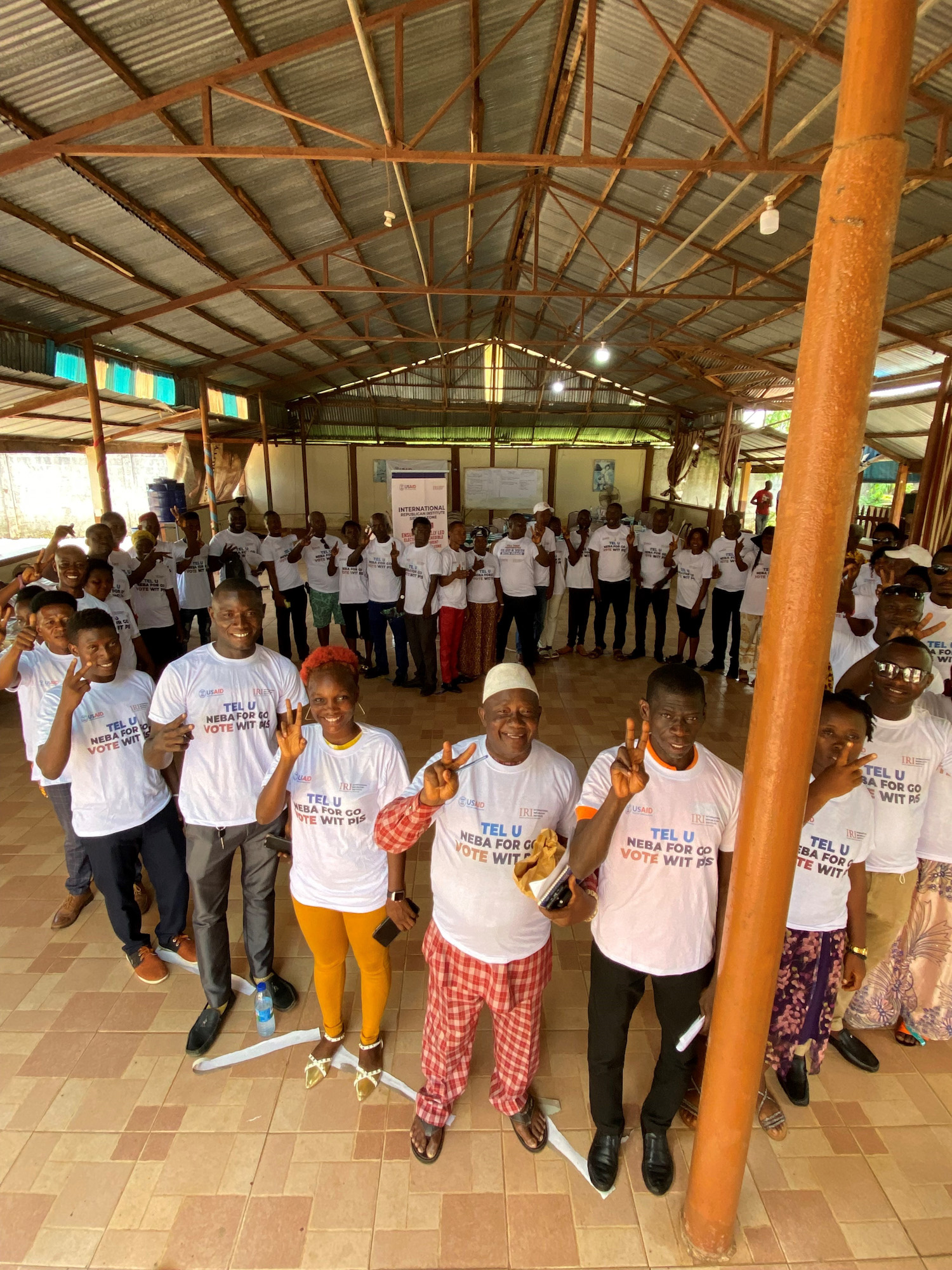
On Saturday, June 24, Sierra Leoneans will cast their ballots in the fifth multi-tier elections since the country’s eleven-year civil war ended in 2002. The election, which include votes for president, members of parliament, mayors, and local councilors across the country, is largely a re-run of the 2018 polls. President Julius Maada Bio of the Sierra Leone People’s Party (SLPP) is once again running against Samura Kamara of the main opposition All People’s Congress (APC). However, the voting process being used in this election will be different from the preceding elections in post-war Sierra Leone. The International Republican Institute (IRI) and its Sierra Leonean civil society partners have been continuously adapting to the hastily implemented changes to the country’s electoral system, including large gaps in voter education, to ensure the preservation of democratic processes across the country.
In October 2022, President Bio issued a directive to the Electoral Commission mandating that the country’s voting system be changed from single member, first-past-the-post constituencies, to a proportional representation (PR) system for members of national parliament and local councils. Under the old system, one candidate who received more than 50 percent of the vote would be elected per district. Under the new system, seats will be allocated to political parties based on the percentage of votes that they win in each district. Voters will now cast their ballots for political parties, rather than individual candidates. The sudden change was opposed by APC, who quickly launched a legal challenge to the decision. Nevertheless, the Supreme Court upheld the PR system on January 27, paving the way for elections to be held under the new process in fewer than five months.
The PR system is not entirely new to Sierra Leone; it was used in the country’s post-independence elections and then again in 1996 and 2002. However, with over 80% of the country’s population under the age of 35, most voters today have no experience with this electoral system. The switch to proportional representation has paved the way for mistrust among voters, with some believing the changes were made to manipulate the electoral process in favor of President Bio and the ruling SLPP.
Proportional representation will be operationalized at the parliamentary level through the establishment of 16 district blocks, in which political parties must gain a minimum of 11.9 percent of the vote to win seats. Seats will be allocated among the various districts using the averages of the population figures from the last two censuses, despite both the 2015 and the 2021 censuses receiving criticism from domestic opposition and external stakeholders who raised concerns about the integrity of the results. The suspicion surrounding these figures has only been heightened by the release of 2023 voter registration data, which contradicts many of the alleged changes in population recorded in the 2021 census.
Nevertheless, the Southern and Eastern districts will now have 62 parliamentary seats as opposed to 57 under the previous single member district system. The Northern and Western districts, including Freetown, will have 73 seats compared to their current 75. The redistribution of parliamentary seats, in addition to the lack of familiarity with the PR system, creates the potential for confusion and disorder on election day and in its immediate aftermath. This is even more concerning given the history of violence in Sierra Leonian politics.
As Sierra Leone reels from economic instability and an inflation rate of over 40 percent, the June elections will undoubtably serve as a referendum on Bio’s government and the challenges that the last five years have brought. However, in addition to the advantages that Bio already has as an incumbent president, there are concerns that the new electoral system could tilt the scale further in his favor.
Uncertainty remains among voters and officials alike as to how the new electoral process will unfold. Through the Consortium for Elections and Political Process Strengthening (CEPPS) mechanism, IRI has been actively supporting civil society in close collaboration with the Electoral Commission to conduct civic and voter education activities focused on the PR system and other recent electoral reforms. IRI and civil society partners have also been actively promoting anti-violence initiatives and urging voters throughout the country to refrain from political and electoral violence.
Top